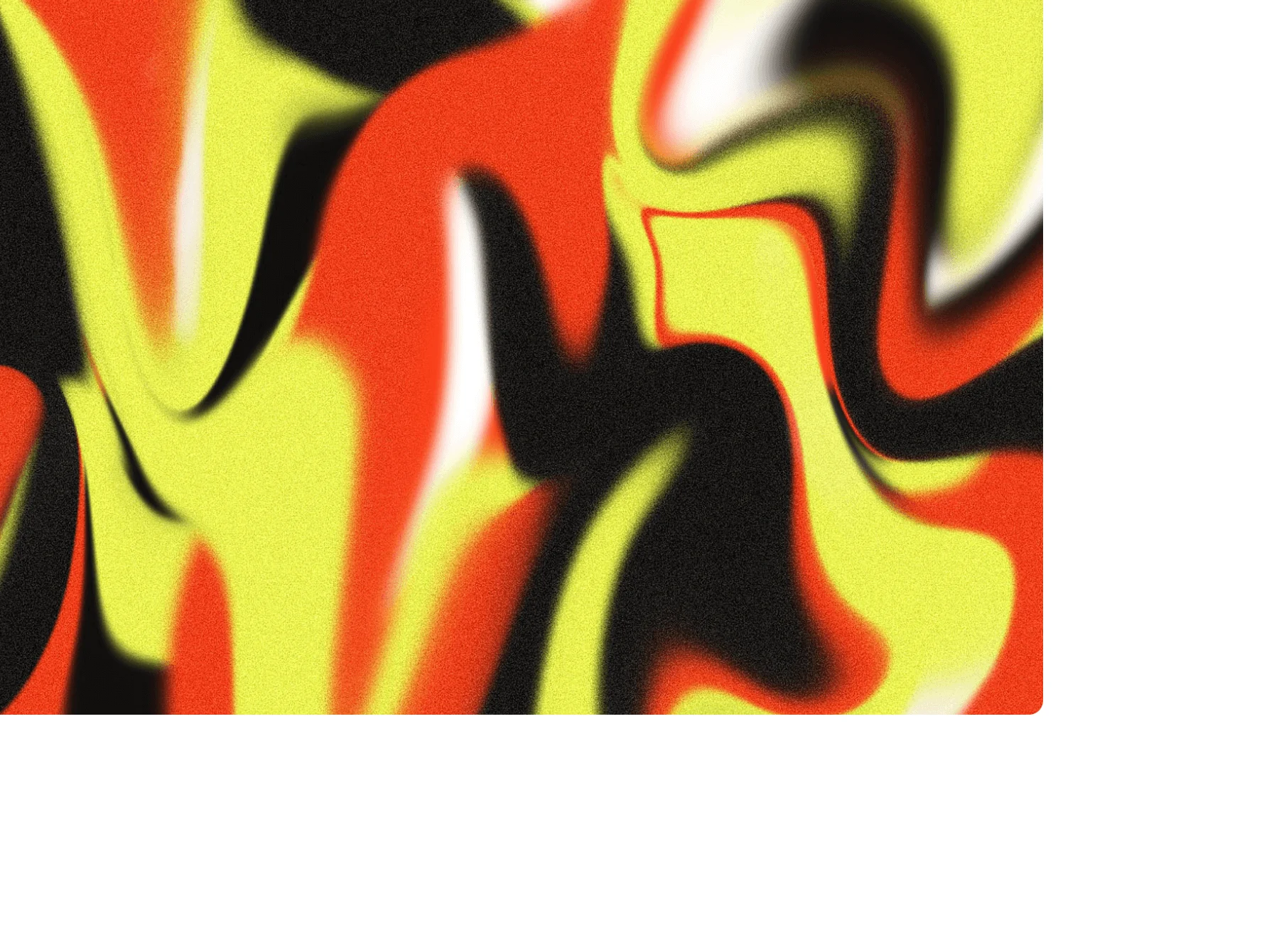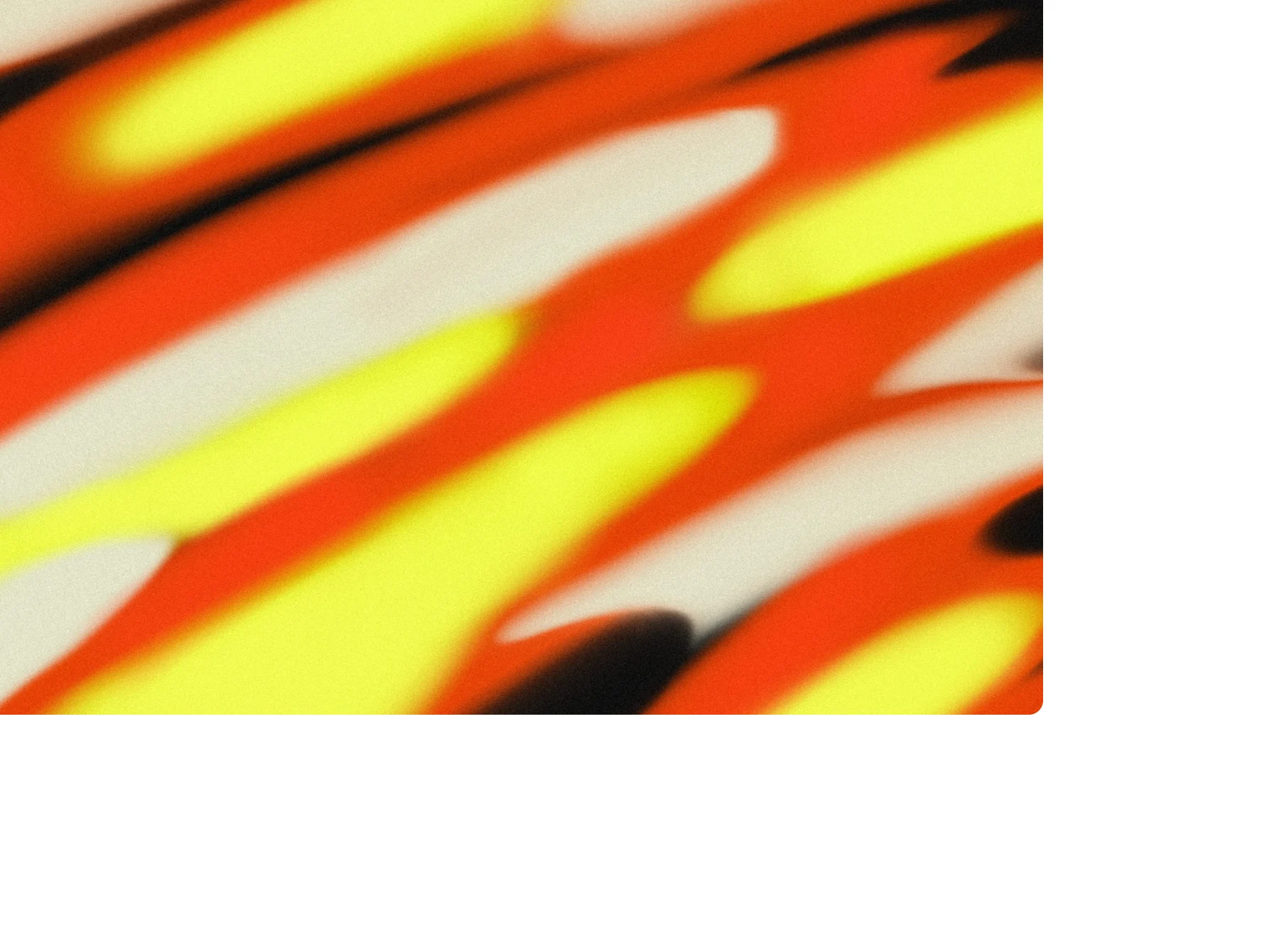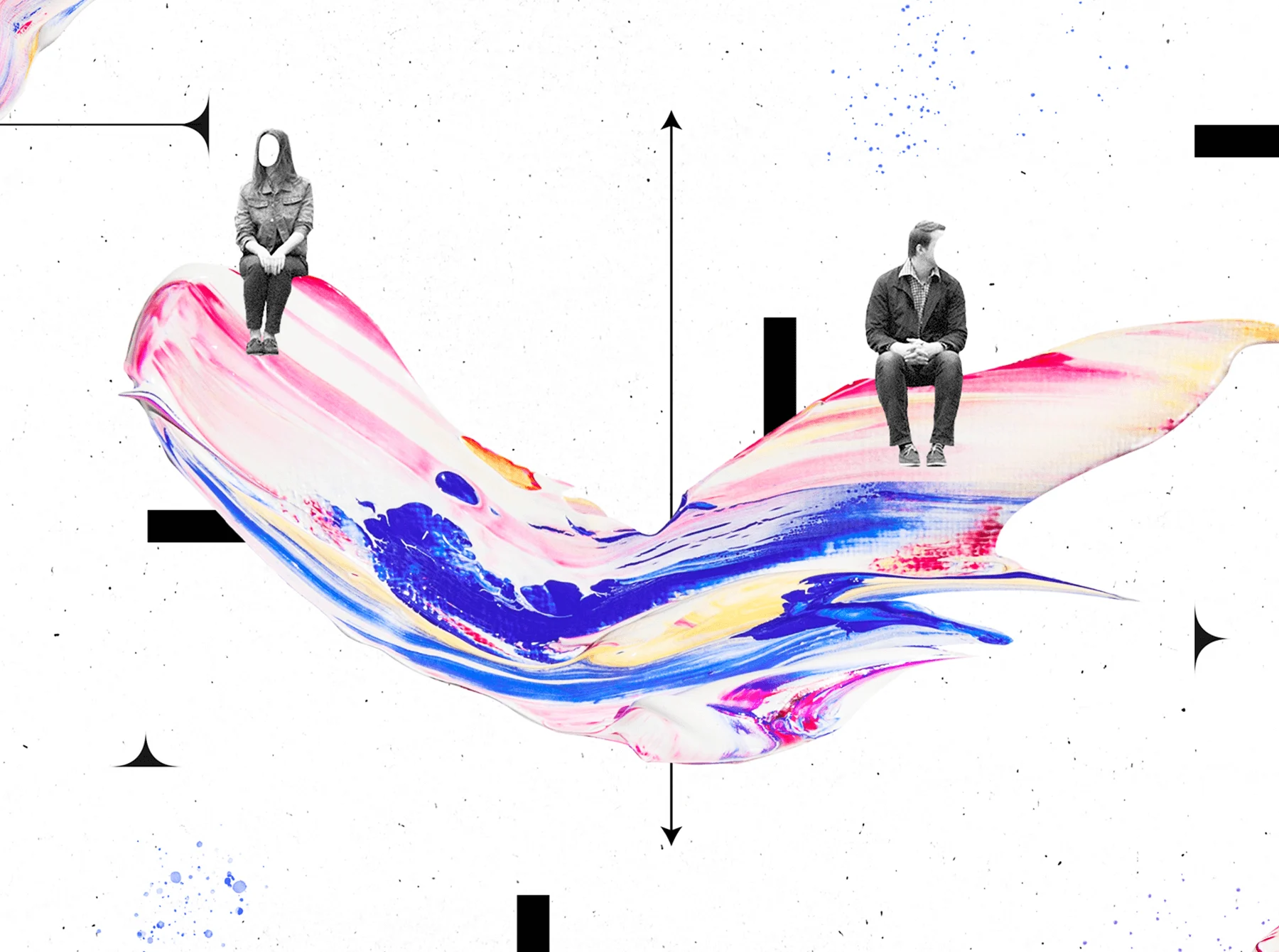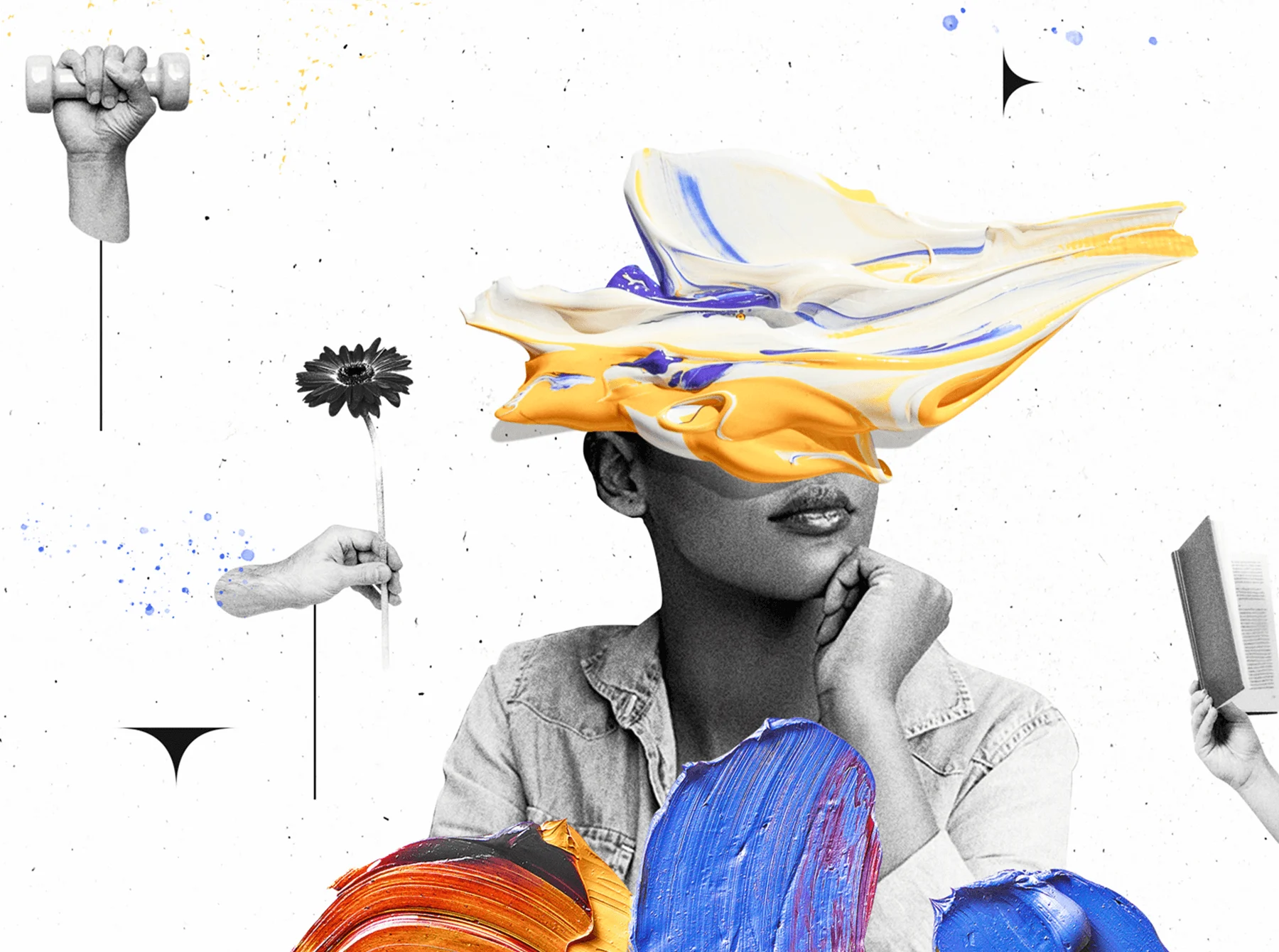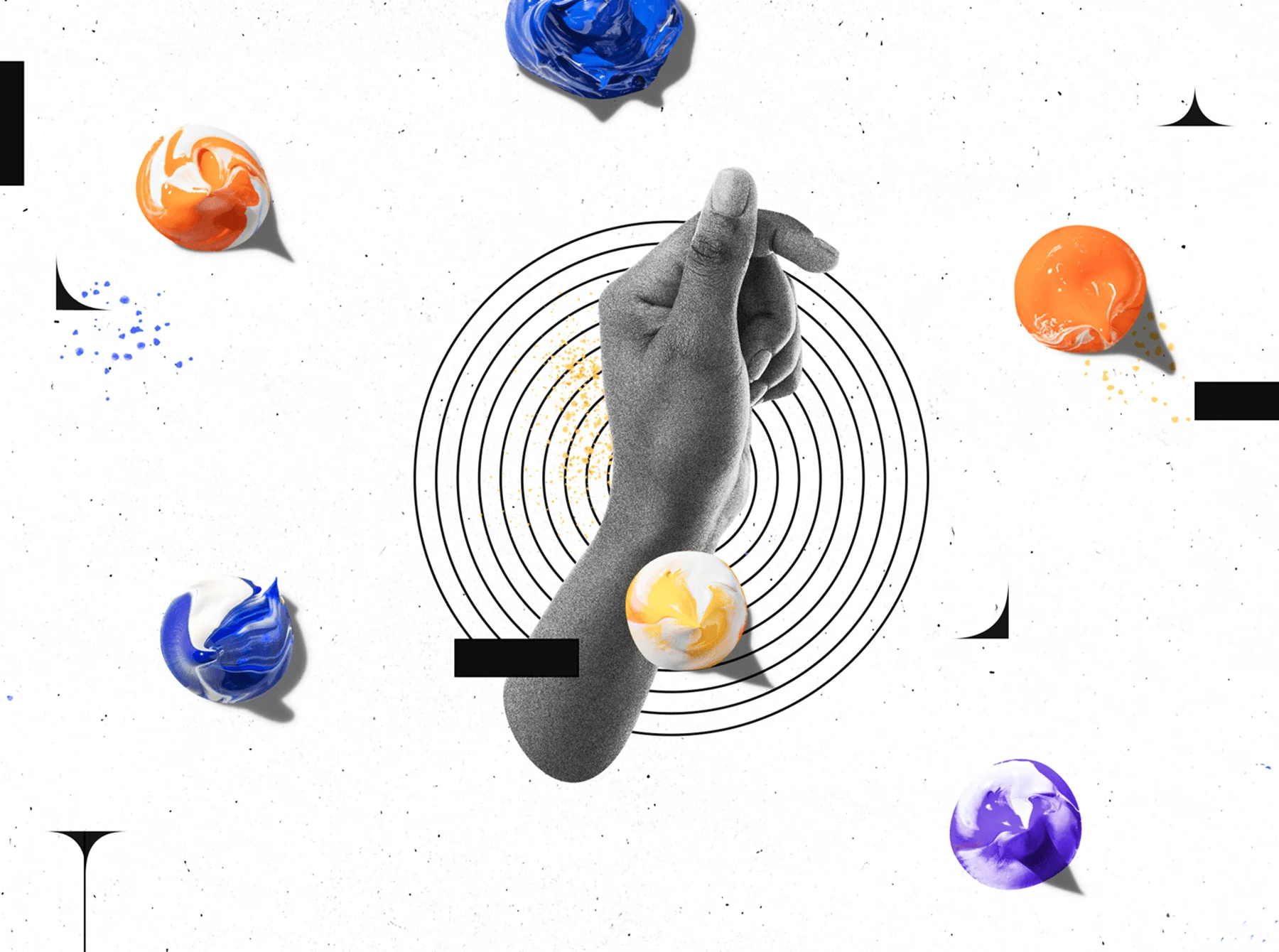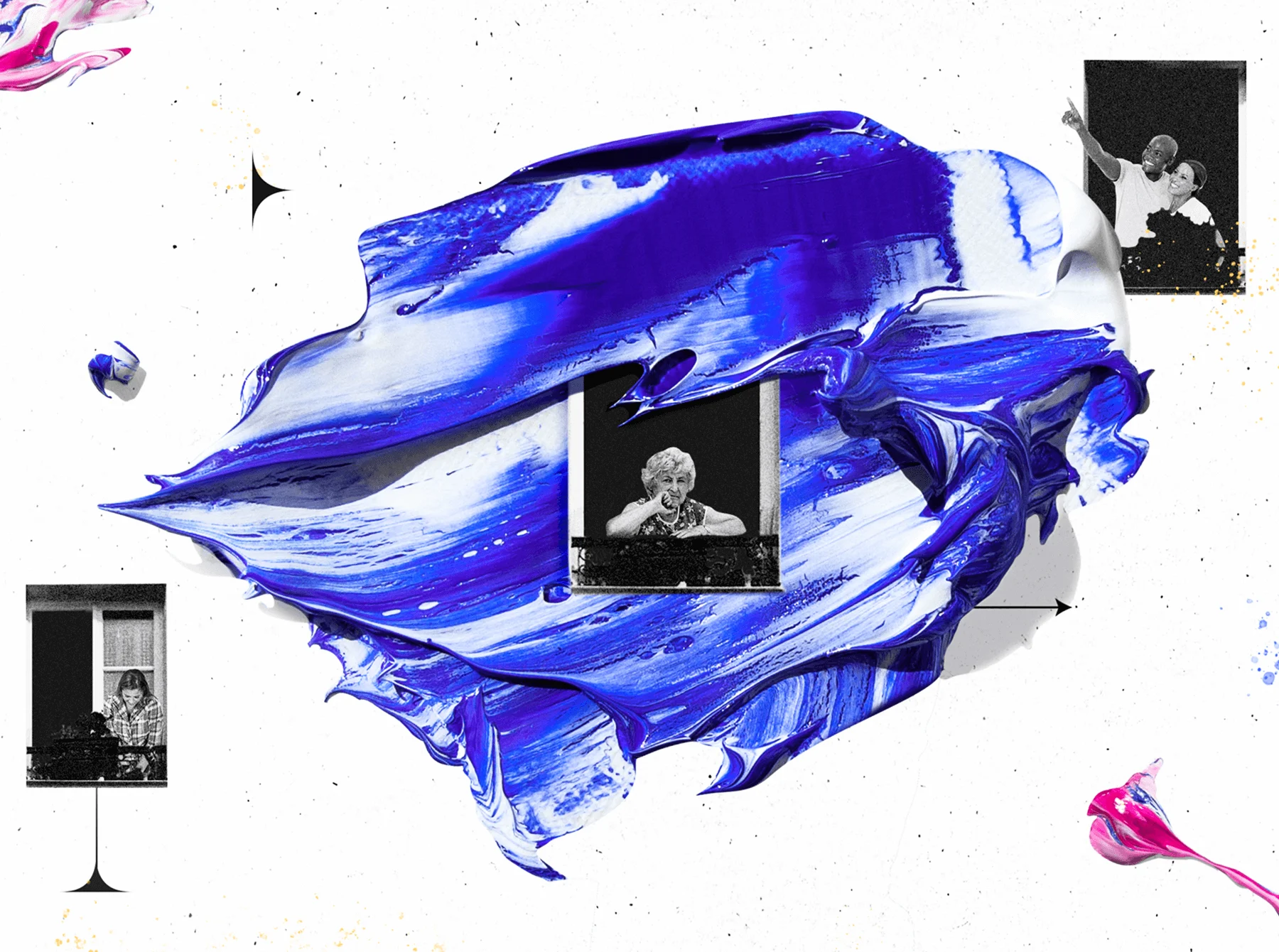
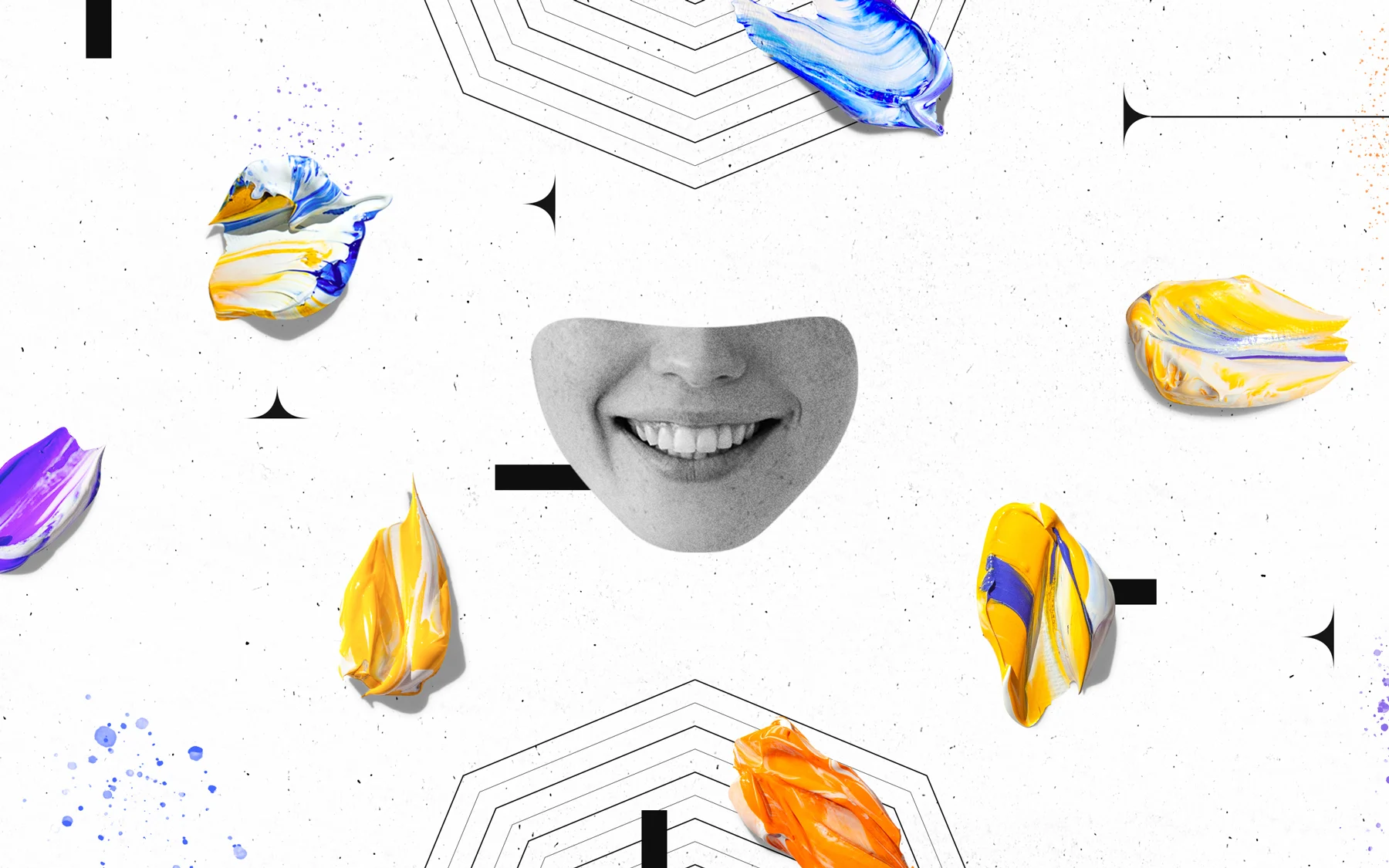
Our 2020 Ideas Report showed that 49% of people say family or friends are their main source of inspiration, leading us to deduce that inspiration is sometimes closer than we think. At the start of lockdown, award-winning photojournalist Emily Garthwaite left her home in Iraq and moved in with her family back in the UK. Adapting was hard, but something amazing happened in the following months. Inspired by time with her family and by the surrounding wildlife and away from the bustle of normal working life, she became more creative than ever.
Data visualisation by Gabrielle Merite.
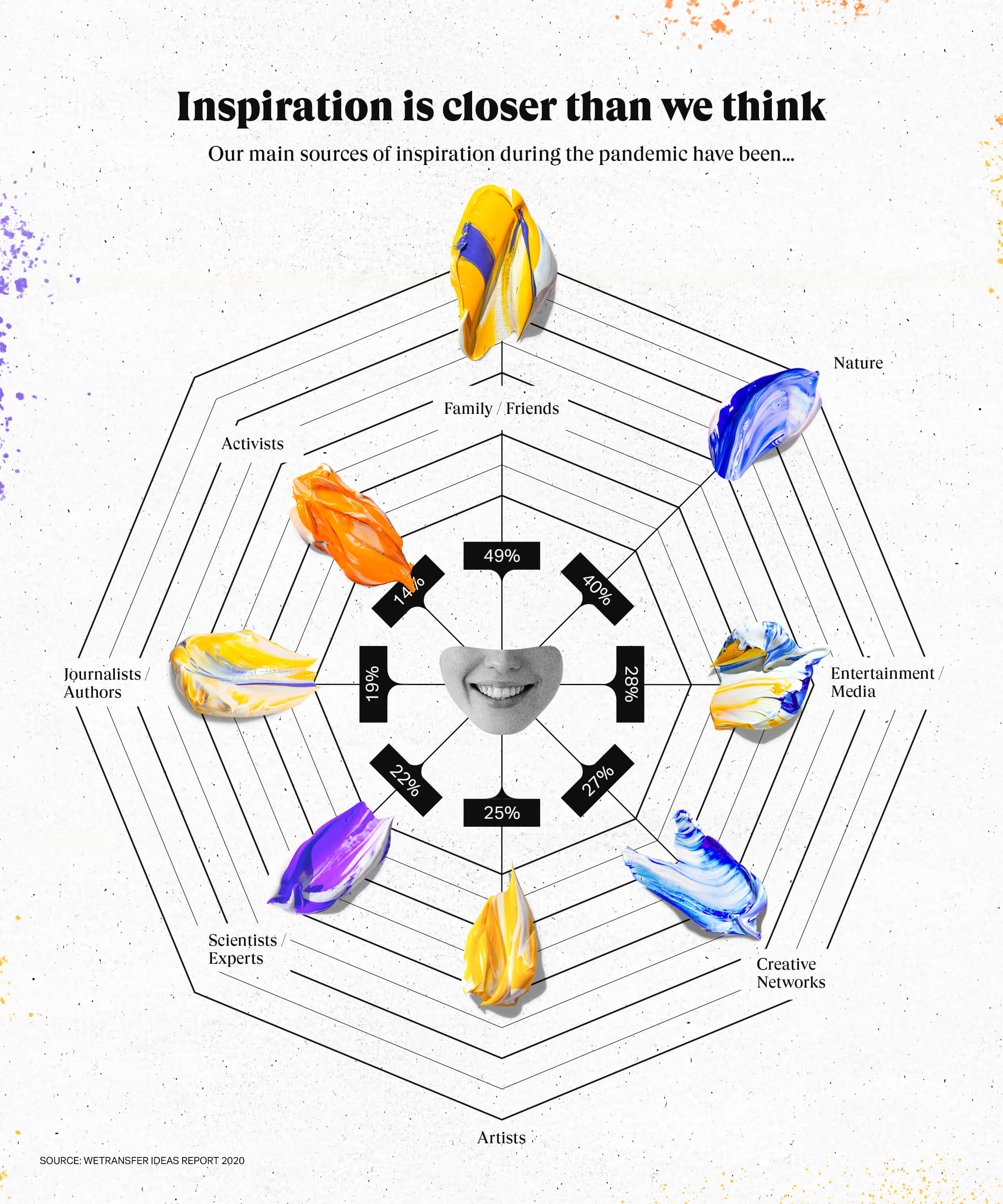
My partner and I left Iraq just before the government lockdown. We came back to the UK and moved in with my family, meaning there were nine of us in the house, including a two-year-old.
While my family are really close, we usually only spend Christmas and Easter together as it’s really hard to get all of us in one house. It’s all well and good going back for just a week, but you really start to learn about each other after a while. We learned that we’re actually all so different and have different aspirations. I remember my mum saying at one point, “It’s really nice to see that we all like each other.”
It was challenging but we all just joined forces. It was the space I haven’t had for years to actually reflect on what I was doing. I cherished having my family so close to me as I think everyone just needed to hold each other so tightly. That said, I had no clue it would cause such a shift within myself. I didn’t know I needed that space, and that I’d been running from it for so many years. All I had to do was just breathe for a little while.
I realised that when everything is stripped away, I’m still an artist and I’m still a creative, and I can lean on that.
My partner and I would go to a shed in the woods and work from there and we would sleep in a tent out there sometimes. There was so much wildlife and we reconnected with nature and found this space that was just for us, which was so hard for everyone during lockdown. There was no WiFi and no phone signal. I’d try to walk for an hour or two every day. One day I walked 22 kilometres, just listening to audiobooks and taking photos. For the first month or so I was more creative than I’ve ever been. That was such a beautiful experience because I realised that when everything is stripped away, I’m still an artist and I’m still a creative, and I can lean on that.
At the start of lockdown I was reading so much news, but I learned quickly that it doesn’t really help, it just muddies the waters. What the walks provided was that clarity of thought. I’d never reflected more heavily on my career, because it had gone at such a fast pace. I started to journal a lot and think about what I want to say and what stories are really important to me to tell. I suddenly wanted to move slower.
I just watched life unfold and kept my camera on me, just as I had done with my own family.
I realized the surroundings and the environment were most conducive to me thriving creatively and I’ve been trying to recreate that sense of serenity post-lockdown. For a recent assignment, I followed a Bakhtiari family in South West Iran on their migration across the Zagros mountains and I really put into practice so many things I had learned during lockdown with my own family. It’s the happiest job I’ve ever done and the main reason for that was there was no phone signal of any kind, so I could entirely focus on the subject. It was so strange to have gone from my own family, watching people’s habits and how they communicate with each other over a long period of time and documenting these special moments, to moving in with another family who were going through something so physically challenging.
All I had to do was just breathe for a little while.
Many people had told me that the Bakhtiari nomads aren’t particularly affectionate within their families, but I saw them be incredibly intimate and loving, and that can only happen when you take the time to get to know them and let them warm up to you. I’ve really seen that shift in my work since lockdown. There’s more intimacy in it and I can really invest in and put time into stories. I just watched life unfold and kept my camera on me, just as I had done with my own family. I suddenly had so much faith that in time things would happen if I just watched and waited.
I found my place in that family after a week. I really found a home with them. If you’re doing a job for only a few days, there’s a pressure to force that connection and share who you are while listening to them. But spend a longer period of time with people and you don’t have to push yourself on anyone. I left that family completely changed and it was the first time I could see that my work had completely changed, too.
See the full Ideas Report and find out how 2020 impacted the work of 35,000 creatives at WeTransfer Ideas Report 2020.



